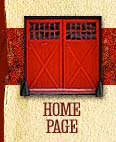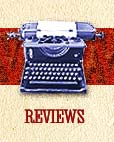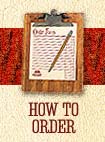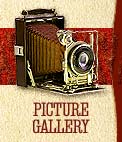GOOD FOR WHAT AILS YOU
Music of the Medicine Shows, 1926-1937
Old Hat CD-1005
Reviewed by Jon Pankake / The Old-Time Herald / February-March 2006
The national press has recently discovered “medicalization” in American culture. That is, unwanted behavior (getting irritated at your kids, buying too many pairs of shoes, becoming restless in boring classrooms) is declared an illness treatable by meds supplied by your friendly pharmaceutical industry. Actually, Americans have a long history of medicalization extending back to colonial herb peddlers and forward into the nineteenth century, which saw the introduction of manufactured “medicines” to cure such supposed pathologies as baldness, aging, menstruation, muscles sore from manual labor, and digestive problems from eating a bad diet. The onset of mass media and the entertainment industry became the means to sell product in a capitalist marketplace, and entrepreneurs who marketed patent medicines eagerly latched onto each new communication innovation as a way to peddle nostrums under the guise of entertainment: the minstrel show, the circus, the vaudeville stage, radio, television, and now the internet. (Gotten any spam for Viagra lately?)
Marshall Wyatt’s wildly entertaining CD set spotlights the rural “doctor show” of the late nineteenth century, the little traveling wagons that brought musicians, dancers, blackface comedians, clowns, and acrobats to Midwestern and Southern rural audiences hungry for professional entertainment and willing to buy a bottle of Wizard Oil after the show. Such small shows provided a springboard for performers weary of mill or field jobs and willing to hit the road on the prospect of earning a living from their performing talent.
When the recording industry began in 1923 to market recordings of rural music to rural audiences, a veteran host of medicine show performers was available to relocate their skills to the new medium. Wyatt has chosen for this set performers known to have medicine show, fiddle contest, vaudeville, and other professional stage backgrounds. And what a cast of pros: dazzling guitarists like Shorty Godwin and Willie McTell, brassy jokesters like the Dallas String Band, shouters and eccentrics like Bogus Ben Covington and Beans Hambone, mouth-music laughers like Uncle Dave Macon and Gid Tanner, and stentorian stage voices like Prince Albert Hunt and Jim Jackson.
Likewise, the material here is hardly the gentle stuff Cecil Sharp was contemporarily gathering from fireside and home performers. Many of the songs trace their origins to popular minstrel, vaudeville, or published hokum, and reflect the medicine show performer’s duty to put the grub down where the hogs can get it and gather a crowd around the lamp lit stage. No reissue set I can think of boasts so many eccentricities so amusing as “G. Burns Is Gonna Rise Again,” “Adam and Eve in the Garden,” “I Heard The Voice of A Pork Chop,” or my favorite, “Jimbo Jambo Land” (“I don’t give a dambo / for any other bimbo / in Jimbo Jambo Land”). If this collection of pure fun were selling anything, I’d push to the head of the line to buy some.
Marshall Wyatt’s wonderful and impeccably researched 72-page booklet, chockablock with priceless photos, medicine show history, and artist biographies, provides a base of gravitas to the craziest collection of old-time music since Harry Smith’s Anthology. Remastering of the 78s (even the Paramounts!) is superb. As the good doctor says about his Vim-Tone Snake Oil, you can’t afford to be without this one.
|















